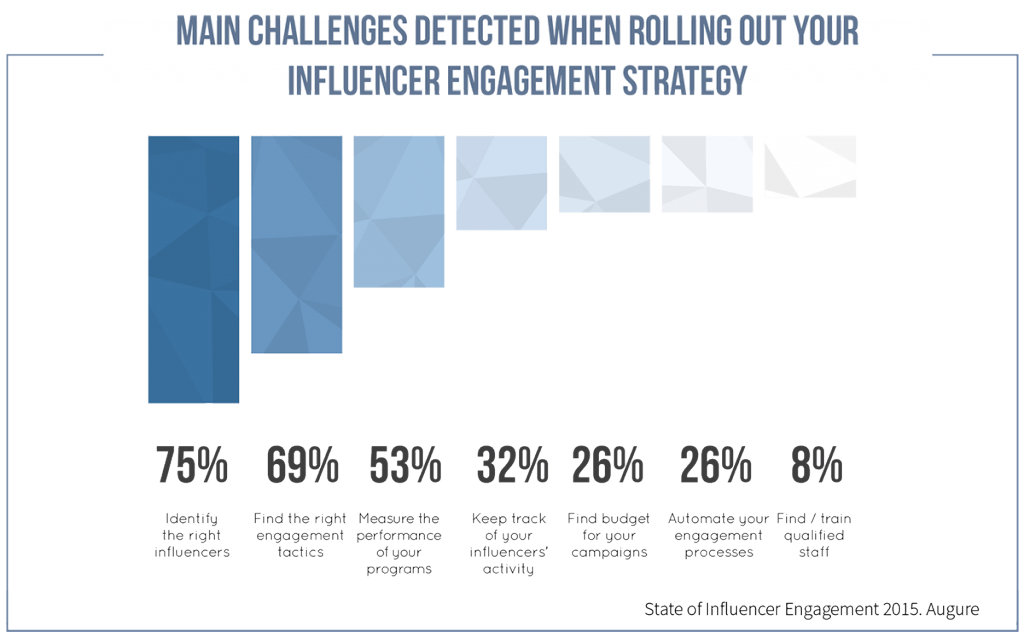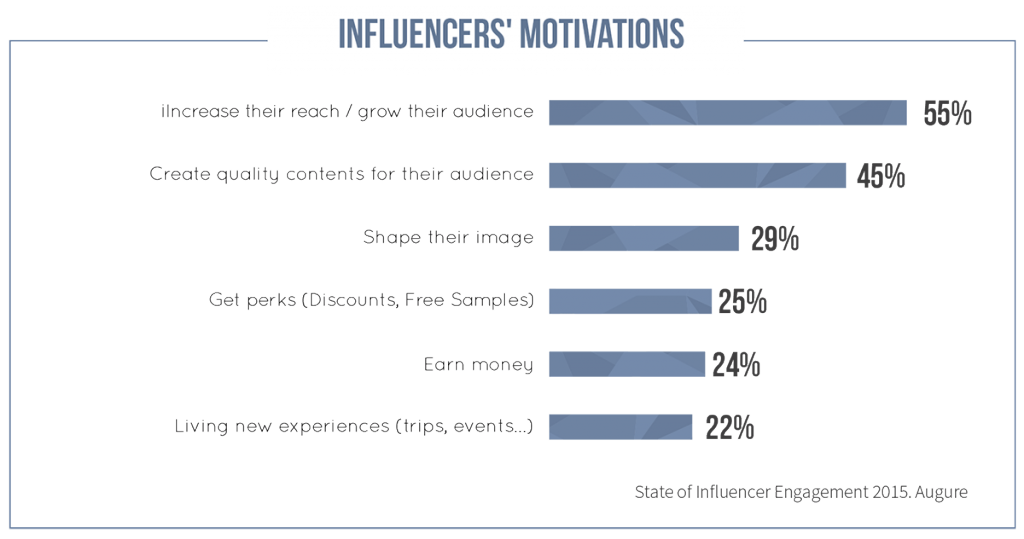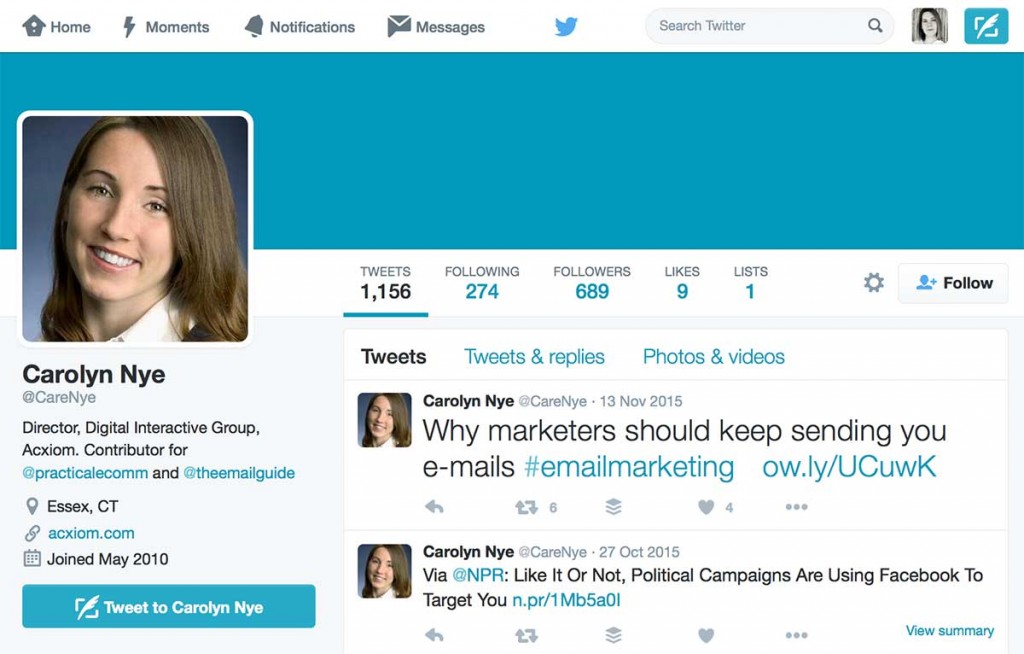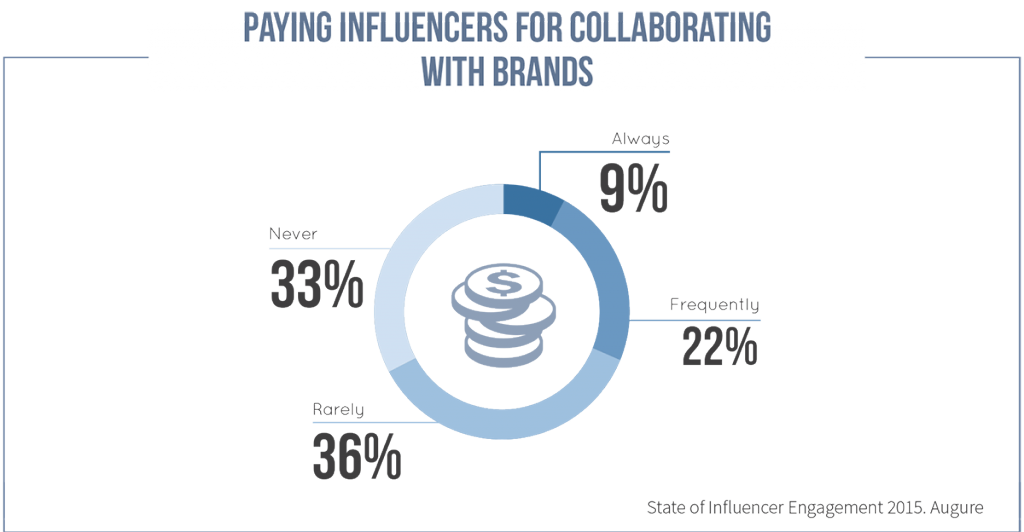
Blogs are hungry creatures. Even if you feed them sparingly, they need to be updated on a regular basis. You can, of course, curate some of your blog content. And you can write a lot of it yourself. But if you’re a clever content marketer, you should also know how to get influencers and subject matter experts to contribute to your blog.
Would you like to get more contributed content – high-quality, authoritative content – for your blog? Here are a few things to try, plus real-world examples of them at work.
1. Get good at finding influencers and subject matter experts.
According to Augure’s 2015 State of Influencer Engagement report, most marketers think this is the hardest part of influencer marketing.
Fortunately, there are plenty of resources and tricks to find all the influencers and subject matter experts you could want. But before I go any further, let’s clarify something:
The difference between influencers and subject matter experts
It mostly comes down to their audience. Influencers have significant audiences. The size of their audiences can show up in many ways. Twitter followers are one. Klout and Kred scores are another. A popular blog, a large email list, or thousands of YouTube subscribers count, too.
Subject matter experts have much smaller audiences. That doesn’t necessarily mean they aren’t as knowledgeable about a subject. And it doesn’t mean they aren’t as good at contributing content as influencers are.
The biggest advantage with influencers is their audience. It means they can attract a lot of attention to anything they want. The downside is they know it, and they can be busy.
If you’re just starting out with a blog and don’t have much of an audience, it might be hard to get the attention of influencers. For you, subject matter experts, or “micro-influencers” might be a safer bet.
Don’t discount subject experts just because they don’t have a big social media following. So long as they write reasonably well (or are willing to let an editor buff up their work) a subject matter expert can be a huge help with a blog. You’ll just probably have to do more promotion work than if you had landed an influencer.
How to find influencers and subject matter experts
This is a big topic, but here’s a thumbnail list to get you started:
- Use automated tools specifically built to find influencers. Traackr, Augure and NinjaOutreach are all good choices.
- Read industry magazines and blogs you like. Notice who’s guest posting. If you like their articles, they might make a good contributor.
- Look through content you’ve curated. Would any of those writers fit the bill for content?
- Check Amazon.com. Authors trying to promote their books are proven writers. They’re often hungry for exposure.
Take notes as you do your research. Even a simple spreadsheet will do. Something like this, for example:
2. Ask them.
Sometimes marketers know of people who would make fine guest bloggers. But they never ask them to contribute. The key to getting over this is to make it easy. And, of course, to summon up some confidence. The worst they can say is “no”, right?
You may have to ask prospective guest bloggers through more than one channel. For instance, send them a DM on Twitter and an email at the same time. You’re likely to get their attention through at least one of those channels.
It is okay to follow up about a week later if you haven’t heard back from them. But leave it at that if they don’t respond. Sending more than one follow-up wears out your welcome. Sending five or six of them is downright rude. Also, try to avoid calling people for these types of requests… especially on weekends. If you can’t reach someone during the week via social media, it’s unlikely they’re going to interrupt their weekend to talk to you.
Update: OutreachPlus helps you create highly-personalized emails automatically. Check it out and boost your outreach results.
3. Bribe them.
Okay – not an unethical bribe. But payment in a form other than money.
There are plenty of ethical bribes. Here are just a few:
- Offer free use of your products or services. The SEO tool SEMRush has a large, very active blog. Most of it is written by outside contributors, for free. But I wonder if a couple of the more popular bloggers there get a free SEMRush account. This would also help SEMRush because if their bloggers have access to the tool, they’re more likely to mention its features in their posts.
- Swap content with your guest bloggers. You write a post for their blog, they write a post for your blog. This might work especially well if you feel like you’ve run out of ideas for what to write about. You could write a post for their blog about a topic you’ve already written about on your blog. And they could submit their take on a topic you’ve already written about.
- If you’ve got a significant audience, just giving a guest blogger exposure to your audience could be enough to motivate them. You’ll probably need at least 10,000 Twitter followers (or a similar sized audience on another social platform) to make this a viable incentive.
This chart from the Augure report might shed some light on how to motivate influencers and subject matter experts without paying them.
See that “new experiences” motivation near the bottom? If your company offers a conference or holds an annual party, you might be able to offer a free invite to several influencers in exchange for a blog post. Or maybe even a series of blog posts.
4. Pay them.
Okay, probably not the answer you wanted. But it works. With this approach you might be able to set up a schedule of posts, rather than just one-off posts. That could save you a lot of time.
Several successful marketing publications use this technique. Practical Ecommerce is one example. At least as of a few years ago, they paid writers $150 per post. It’s not a big payday, but it gives their writers an incentive. It also helps keep writers on deadline, and to keep the quality of the content up. Some of their writers contribute articles once a week, some every other week, and others once a month.
The system has worked well enough for Practical Ecommerce to grow its audience, support a conference and several other content formats. With a large enough audience you can offer contributors more than just money: You can give them a platform and exposure to a new audience. Even a credential they can use to show their expertise, like the writer Carolyn Nye has done in her Twitter bio.
While payment helps, you don’t necessarily have to rely on it. According to Augure’s research, only 31% of companies pay influencers for their help. And only 9% – less than one in ten – “always” pay them.
5. Attract them.
There’s one major benefit to building a first-rate blog that people rarely talk about. If you do a really amazing job with your blog, people will start asking if they can submit a guest post.
This is not something that happens overnight, or probably even within the first year of a new blog. But I have seen it happen on several blogs. Just for an example, consider a blog like Jeff Bullas’s. Jeff rarely writes for his own blog now – he has guest writers submitting posts pretty much every day. And he probably has to turn away five times as many people as he publishes. So not only has his blog become popular enough that people ask to submit guest posts, but he gets so many requests that he can be very picky about which posts he accepts.
There are plenty of other examples of blogs like this. Jon Morrow’s blog gets an enormous amount of guest posts. So does Copyblogger, Marketing Profs… I’m sure you can think of a dozen more.
Want an example of an even more prestigious publication? One that can attract the best, most authoritative subject matter experts? It’s Forbes. Inc, Fast Company and Entrepreneur are all coveted blogging gigs, too. Not one of them pays their contributors. And yet CEOs and CMOs beg for the opportunity to write for them.
Conclusion
You don’t necessarily need a big budget to get high-quality writers to contribute to your blog. Free access to your products or exposure to your audience is often enough. One thing you will need is the ability to identify good guest post candidates fast. After that, you’ll want a content management system that can keep track of deadlines so your guest contributors don’t fall behind.
It may take a bit of practice to get the whole system running. But once it’s up, you’ll have a nice stream of high-quality content for your blog.
What’s worked for you?
Have you had any guest contributors write for your blog? What worked best? What didn’t work? We’d love it if you’d share your experience with guest content in the comments. If you’ve ever guest posted for a blog, if would be great to hear about that, too.
And if you’d like to know how you can start blogging consistently in 30 minutes a day or less, read our eBook!
Image by Thomas Jefferson.








Thanks Pam for these tips! Finding the right influencers is key to this approach. However, I wanna know if you build up your relationship through social media first? Or do you believe that a brilliant pitch can do the job alone?